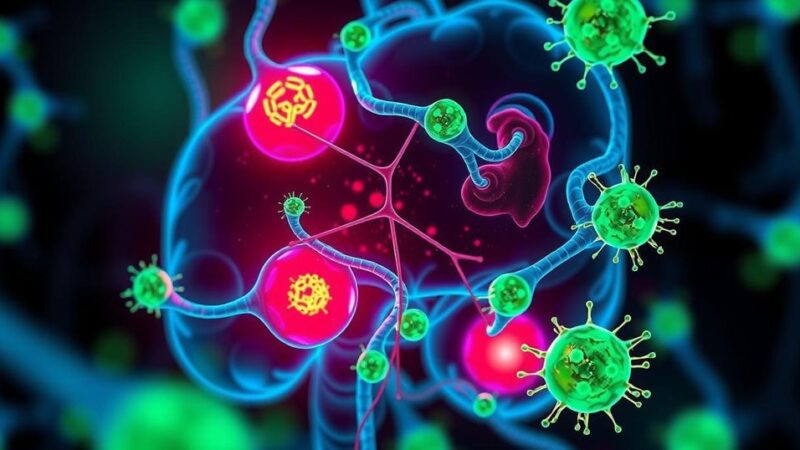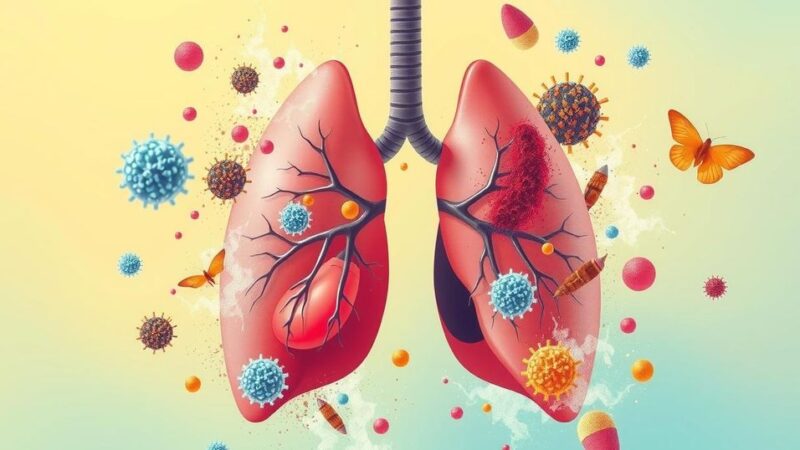Cholangiocarcinoma presents treatment challenges with scarce second-line options. The ECOG-ACRIN EA2187 trial tested pevonedistat but found no effective responses. The trial emphasized collaboration and the urgent need for better therapies in this aggressive cancer type.
Cholangiocarcinoma, a rare cancer originating in the bile ducts, presents a significant clinical challenge. Patients whose cancer worsens after initial treatments face limited options. A recent clinical trial, ECOG-ACRIN EA2187, was introduced at the 2025 ASCO Annual Meeting to explore better second-line therapies for this aggressive disease.
Dr. Suneel Kamath from Cleveland Clinic’s Cancer Institute stated that the established protocol for first-line treatment usually involves chemotherapy combined with immunotherapy. However, he emphasized the lack of satisfactory treatments once these methods prove ineffective. “We’re always looking for something better in that second-line space,” Dr. Kamath mentioned.
Pevonedistat emerged from initial phase 1 trials as a potential candidate for cholangiocarcinoma treatment. This drug targets a specific enzyme involved in protein degradation, making cancer cells more sensitive to damage. Dr. Kamath explained that by blocking this enzyme, they hope to enhance the vulnerability of malignant cells to DNA damage and induce tumor cell death.
The EA2187 trial tested pevonedistat both as an individual treatment and in combination with the chemotherapy agents carboplatin and paclitaxel. It included 40 patients with unresectable or metastatic intrahepatic cholangiocarcinoma who had progressed after prior gemcitabine therapy. Participants were split into two groups: one receiving pevonedistat alone and the other combining it with chemotherapy.
Utilizing a specific study design targeting a 30% objective response rate (ORR), the trial’s primary goal was to evaluate ORR based on RECIST v1.1 criteria. Additional measures included clinical benefit rate, progression-free survival, and the safety of the treatments involved. Treatment-related adverse events were evaluated using CTCAE v5.0 guidelines.
Of the 40 enrolled patients, 34 received treatment; unfortunately, neither group saw any objective responses. However, stable disease was observed in 35.3% of patients—with notable differences between the groups. The combination group had a slightly higher stable disease response, but ultimately the clinical benefit rate was a modest 5.9%.
Median progression-free survival was 1.54 months for those on monotherapy and 2.92 months for the combination group. Median overall survival was reported at 4.80 months for the monotherapy and 6.54 months for the combination. Adverse events were notably more severe in the combination cohort, with 70.6% experiencing grade 3 or higher complications, while the monotherapy group had just 17.6%.
Sadly, the study’s outcome led Dr. Kamath to state that they wouldn’t be moving forward with pevonedistat for cholangiocarcinoma. “These findings reflect how difficult this disease is to treat,” he said, pointing out that patients often develop a high level of resistance after first-line treatments.
Still, he acknowledged the importance of the trial in fostering collaboration across research centers, even amid the constraints posed by the COVID pandemic. “We brought together several centers that hadn’t traditionally worked together, which is significant,” Dr. Kamath noted.
The trial, though not yielding the desired efficacy from pevonedistat, creates a framework for future studies on rare cancers. The pressing need for effective second-line therapies remains a key takeaway from this work, reinforcing how challenging cholangiocarcinoma is to treat long-term. “This trial is a reminder of how high the bar still is for treating cholangiocarcinoma, especially when the first-line fails,” Dr. Kamath concluded.
The recent ECOG-ACRIN EA2187 trial aimed to address the inadequacy of second-line treatments for cholangiocarcinoma. Despite no objective responses among participants, the study highlighted the need for better options in treating this cancer. Also, the collaborative effort during the trial emphasizes research potential in rare diseases, albeit the results from pevonedistat lack effectiveness. Overall, the research underscores the critical challenge in developing meaningful therapies for patients with rare cancers like cholangiocarcinoma.
Sumber Asli: consultqd.clevelandclinic.org






